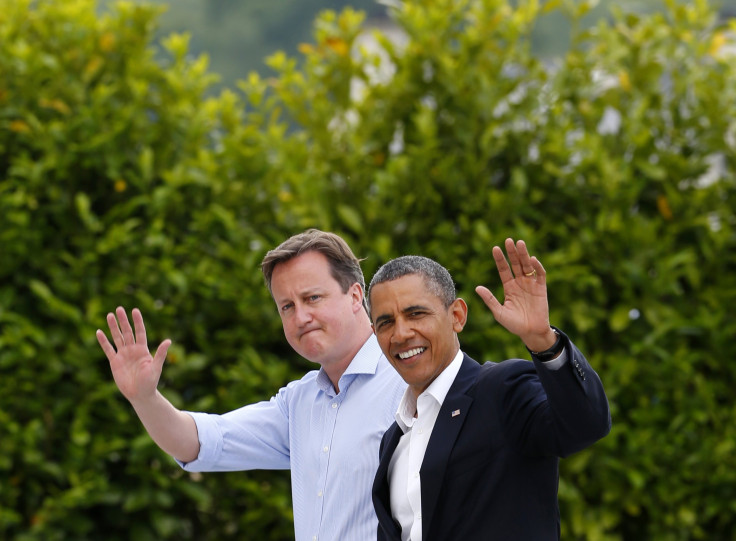EU And US Launch Negotiations Over What Could be Biggest Trade Pact In History

President Barack Obama and top European officials formally launched negotiations over a trans-Atlantic EU-U.S. trade deal, potentially the biggest trade deal ever, at the sidelines of the G-8 summit in Ireland Monday.
U.K. Prime Minister David Cameron, a key figure in the talks, hailed the proposed agreement as a “landmark deal” that could add £100 billion ($157 billion) to the EU economy and £80 billion to the U.S. economy.
The first round of talks are set to start in Washington next month, though the deal has been in the political pipeline for years.
“We’re talking about what could be the biggest bilateral trade deal in history -- a deal that will have a greater impact than all the other trade deals on the table put together,” said Cameron at a press conference in Lough Erne, Northern Ireland.
The negotiations are expected to touch on agriculture, subsidies and data protection policies. They aim to deepen free trade between the two blocs by removing tariffs and other trade barriers such as different quality and labeling standards.
France has recently raised stumbling blocks in the negotiation, insisting that the French media and culture industry retain economic protections.
That stance drew stinging remarks from European Commission President Jose Manuel Barroso on Monday, reported the Financial Times, who called France’s position “culturally extremely reactionary.”
But EU nations approved the start of negotiations on Friday, bowing to French objections and excluding European media from the talks, at least initially.
President Obama reminded reporters at the press conference that the EU and U.S. trade relationship is already the largest in the world, accounting for about half of global gross domestic product (GDP).
He said the deal has been “warmly received” in the U.S. by Congress and the business community. But the parties involved conceded that negotiations could be tough and prolonged.
“There are going to be sensitivities on both sides. There are going to be politics on both sides,” said Obama.
“Trade is critical, but it is not alone a silver bullet,” he added, referring to the economic and unemployment woes facing both the U.S. and Europe.
In a report released Monday, Munich University researchers projected that an ambitious trade deal would benefit the U.S. the most, though it wouldn’t harm the EU.
Trade with the developing world and other longtime trading partners could slacken after a major EU-U.S. trade pact, however, the report said.
The EU also posted strong trade figures for April 2013 on Monday, showing that the 27-nation bloc enjoyed a €9.2 billion trade surplus ($12.3 billion) for the month, up from a €13.4 billion deficit in April 2012.
The latest U.S. figures show a widening national trade deficit, at $40.3 billion in April 2013, up about $3 billion from March. The U.S. traded at a deficit with the EU in 2012 and was its biggest single investor last year, in a relationship worth about $2.7 billion daily.
© Copyright IBTimes 2024. All rights reserved.












